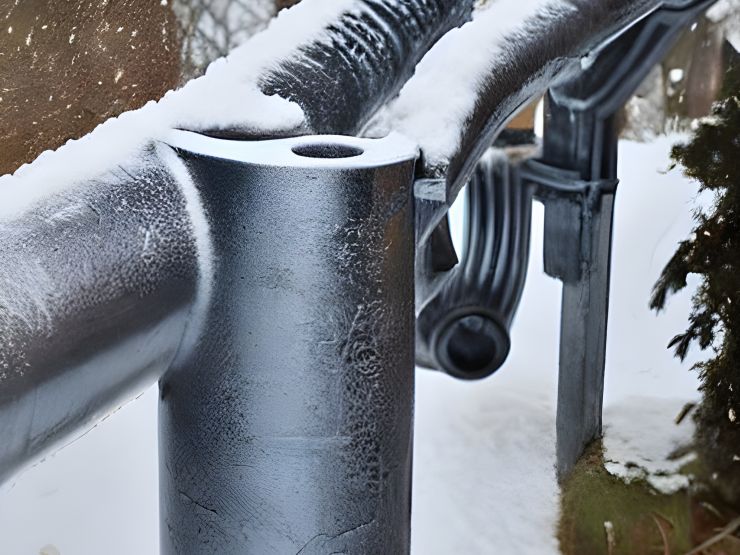How to avoid frozen pipes and keep things flowing

15th January 2024
Winter can be a challenging time, especially when it comes to dealing with frozen pipes. When temperatures drop below freezing, the water in your pipes can freeze, causing them to burst and potentially leading to significant water damage. Here’s a guide on how to deal with frozen pipes during this winter season.
Identifying Frozen Pipes
The first step in dealing with frozen pipes is identifying them. Here are some warning signs:
- Your central heating makes gurgling sounds when it’s on.
- Your boiler won’t turn on.
- There’s no water coming out of your taps, or just a trickle.
- Your sink is clogged and your toilet is flushing slowly.
What to Do If Your Pipes Freeze
If you suspect that your pipes have frozen, here are some steps you can take:
- Turn off your inside stop tap immediately. It’s usually located under the kitchen sink, but can also be found in downstairs bathrooms, kitchen cupboards, garages, cellars, and under the stairs.
- Open all your taps to drain the system as quickly as possible, saving some water in a bucket, if you can, for flushing toilets and hand washing.
- Thaw the frozen pipe slowly. You can use hot water bottles or towels soaked in hot water. Never use a naked flame or blowtorch to thaw the pipe, as direct heat may cause permanent damage to the pipes and could also lead to a fire in the home.
- Turn on nearby cold taps (keep the stop tap turned off) as this will relieve pressure on the frozen pipe.
What to Do If Your Pipes Burst
Sometimes, despite your best efforts, pipes can burst. If this happens, here’s what you should do:
- Turn off the water supply coming into your property at the stop tap and switch off your boiler.
- Open all your taps to drain the system as quickly as possible, saving some water in a bucket for flushing toilets and hand washing.
- Soak up escaping water with towels to limit the damage.
- Call us on 020 8607 7777 and we will arrange a plumber to work on the plumbing system in your home.
- If water has leaked near your electrics, do not touch them and switch them off at the fuse box.
Preventing Frozen Pipes
Prevention is always better than cure. Here are some tips to avoid frozen pipes in the future:
- Make sure you know where your stop tap is and check it’s working every six months.
- If you are going away, leave your heating on low.
- Ensure all pipes in your roof space or loft, as well as pipes in other areas that may be vulnerable to the cold, are insulated and your boiler is serviced.
- Get a neighbour to check inside your home occasionally, if you go away.
Remember, dealing with frozen pipes can be a daunting task, but with the right knowledge and preparation, you can prevent damage and keep your home safe and dry during the winter months. Stay warm!
Related Categories
News Filter
- Show All
- October 2024
- September 2024
- August 2024
- July 2024
- June 2024
- May 2024
- April 2024
- March 2024
- January 2024
- December 2023
- October 2023
- September 2023
- May 2023
- April 2023
- February 2023
- December 2022
- October 2022
- September 2022
- August 2022
- July 2022
- June 2022
- May 2022
- March 2022
- February 2022
- December 2021
- November 2021
- October 2021
- September 2021
- July 2021
- June 2021
- May 2021
- April 2021
- March 2021
- February 2021
- January 2021
- December 2020
- November 2020
- October 2020
